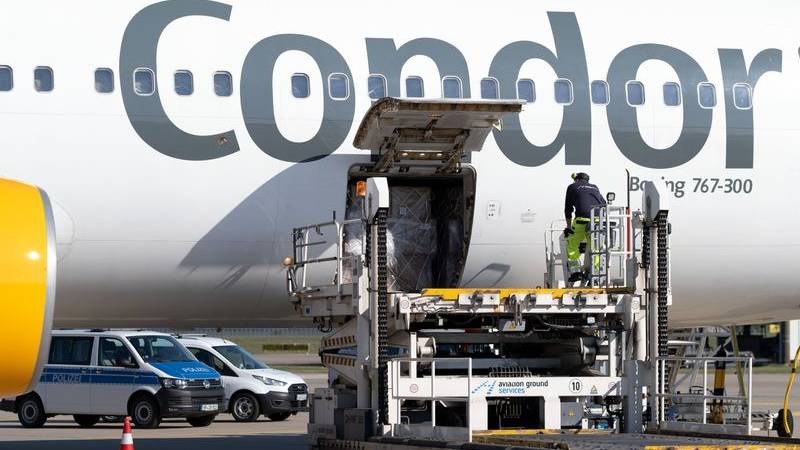In the Corona crisis, Germany is allowed to keep the holiday plane Condor in the air with new millions of aids. On Monday, the EU Commission approved the new KfW loan programme for a total of 550 million euros, which is guaranteed by the federal government and the state of Hesse.
According to the company, the bridging loan of EUR 380 million, which was approved last autumn, will be completely replaced by long-term financing.
Federal Minister of Economics Peter Altmaier (CDU) justified the further support with good prospects for the airline: “The company was operationally healthy and profitable in normal times and has a good future perspective.” Representatives of the state of Hesse expressed their strong interest that Condor, as a large employer at Frankfurt Airport, survives the crisis.
The European Commission stressed on Monday that the coronavirus outbreak was an “extraordinary event” that justified special measures by EU states. State aid to the Condor is expected to account for only part of the losses incurred by the pandemic, which will be reviewed on the basis of the 2020 profit and loss account. There is therefore no risk of Condor receiving more State aid than it is entitled to.
The new rescue of the airline had become necessary in the course of the Corona crisis: the Polish aviation holding company PGL had cancelled the takeover of the German holiday airline, which had already been agreed in January, due to its own problems. The Frankfurt-based company Condor, with around 4900 employees and more than 50 aircraft, had gone into a protective shield procedure after the bankruptcy of the British parent company Thomas Cook in September 2019 and has been rehabilitated as a result.
Condor had received a bridging loan of 380 million euros, also guaranteed by the federal government and the state of Hesse, in order to support it in autumn 2019. It will now be replaced by 11-year funding, a company spokeswoman said. Only EUR 256 million of the old loan was called up.
A new sales process for the company will be launched once the effects of the Corona crisis have been overcome. An exact date could not be given. As a tourism provider, however, one can expect a faster economic recovery than a provider of business flights. The protection shield procedure is to be abandoned as soon as possible.
The pilots’ union Vereinigung Cockpit expressed relief that Condor remained committed to the agreed employment security. “We see from Condor’s example that joint action by the state, companies and employees can lead to viable solutions,” explained VC President Markus Wahl. “We also need this way for the other German airlines.”
The design of state aid for the much larger Lufthansa, whose financial needs are valued at up to 10 billion euros in Berlin, is still open. A rescue of both airlines is clearly in the interests of Germany and also of German airports, said Stefan Schulte, president of the ADV airport association and Frankfurt airport chief. A competitive and strong Lufthansa must continue to connect Germany to the world in the future. The Dax Group reported a first loss of billions last week and declared that it could no longer save itself on its own in the face of a still almost standstill flight operation.
On Monday, two Union politicians, Transport Minister Andreas Scheuer and Economy Minister Peter Altmaier, spoke out in favour of limiting the state’s influence on business decisions, even in the event of massive aid. Lufthansa has proven that it can be successful through “flexible economic action,” Scheuer said. He wants “this company to remain flexible.” Altmaier told Deutschlandfunk radio that state influence was “not appropriate” for companies that were competitive before the crisis. But he opposed supporting companies that wanted to pay dividends and pay high bonuses to their managers.



